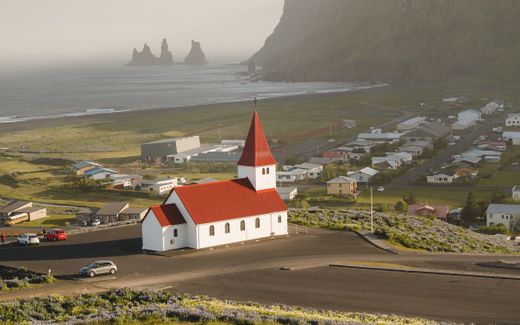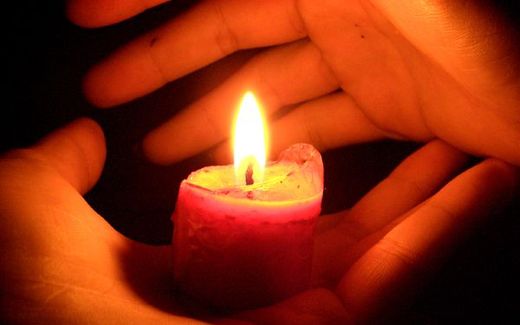Every day should end with a mini-Sunday
06-11-2021
Opinion
Bart-Jan Spruyt, RD

Working hard is attractive. Photo Flickr, Sterling College
Opinion
We lead such busy lives—and, if we're honest, we're rather proud of it. But nothing can be more important than having some availability. Without it, we have no room in our lives to do the things that really matter.
My grandmother had the saying, "The day needs an evening." She was good at proverbs and songs. What she meant by that particular saying is this: Good as it is to be hard workers in the daytime, part of each 24 hours needs to be devoted to overviewing life, taking a breather.
Protestant work ethic
This view of life doesn't always sit easily with the Protestant work ethic or (as we Dutch know it) the Calvinist work mentality. We're fully booked with duties to perform, and secretly we're pleased with ourselves for the number of hours a week we work. We even tend to conclude that all that busyness and enthusiasm must mean we're good people—or to imagine that the prosperity we enjoy as a result of our hard work is automatic "God's blessing". Of course, to think that is to fall into the trap of self-deceit.
It recently struck me just how deep our sense of duty runs. Someone told me about a man who had got a job as a teacher. Not long after being appointed, he found out that he had a double hernia. But, of course, you don't talk about pain and discomfort at work, and certainly not so soon after starting a new job. So he would drive to school at 6 am, do an hour's walk to loosen up, and then teach from 9 am to 1 pm. He put off the hernia operation, but much later on, he had to have it anyway, and because a nerve in his leg had died, he now has to limp through life with a foot that won't move. Calvinism can be fatal.
In the face of all that work ethic, my grandmother's proverb still stands. Actually, my grandmother's view of work is a far older and a much more Christian one, but has grown neglected and forgotten.
Leisure as culture
In a remarkable last century essay, the German Christian philosopher Josef Pieper (1904–1997), a professor at Münster, reminded us of this truth. He entitled the essay Muße und Kult—"Leisure and Culture". He wrote that the Greek word equivalent to Muße was actually scholē, the very word from which we get the word 'school'.
The most suitable English word to translate Pieper's Muße is 'leisure'. Still, if we use that word, we are opening ourselves up to a potential major misunderstanding.
As my grandmother said, the day needs an evening
When we speak of 'leisure', we think of holidays, a walk in the woods, a trip to the beach, and a little light reading, perhaps in the form of glossy magazines or a bestseller. That is, however, not what Pieper means.
The rest that he writes of—informed by an age-old wisdom tradition—is the rest of a pause, of a vacuum, of a gap that we have to make an effort to build into each day. It is the rest of dozing, of a moment's positive laziness, of rummaging around and hanging back for inspiration to strike; a rest to create a space for reflection, creativity, imagination, joy, and what is known in English as serendipity: the gift of finding something you weren't even looking for. So Muße is not about distraction, but about concentration: about focusing ourselves—in an atmosphere of quiet, curiosity, attention and love—on matters whose importance exceeds the importance of our day-to-day concerns.
Anything else is barbarous
He who knows nothing of this rest and concentration is a barbarian. If he calls himself a Protestant, then he's a Protestant barbarian. This rest is nothing less than the prerequisite and the basis of culture and upbringing. In that everyday moment of rest, we see beyond our busyness and all the valuable enthusiasm with which we seek to secure our identity. It is there that we open ourselves to the influences of study, meditation, concentrated reading, and all the things that rise above the banality of our work: truth, goodness, beauty. Surrendering ourselves to this rest is the way to turn ourselves from proletarians into people. Indeed, every day needs a mini-Sunday.
No one, argues Pieper, can listen without shutting up; no one can notice or learn anything without falling silent first.
It would seem that our busyness is, above all, a means of escape. All too often, our so-called 'leisure' offers us nothing more than disappointing distractions. The chit-chat you hear at social gatherings frequently illustrates what one Viennese essayist called "the demon of company" (Gemütlichkeit). Blaise Pascal observed that he who can sit in a silent room for hours is well brought up. It is during our moments of rest that we receive the gifts that make us thankful. We prefer to make things for ourselves than receive them; we'd rather be proud than grateful.
Reading well
The ideal of Muße means concretely, is that we should learn to play and learn to sit; to log off rather than logging in, so that we can read a good book instead of a screen. A good book obliges us to read attentively. The main thing is not that we read, nor even what we should read; the critical consideration is how we read. It is our manner of reading that determines our mental hygiene.
Both in the Jewish tradition, where it is called pardes, and in the Christian tradition, where it is known as lectio divina, our forebears have thought long and hard about this need. They have consistently described it as an activity that encompasses reading but also prayer, meditation, contemplation and equipping of the believer.
It should take place every evening, not just at the occasional times when it feels convenient. But we are so busy! My advice is that it helps if we tell ourselves, "I'm reading just now", and occasionally put our book down to do something else.
The last day will be one without an evening
Coming back to my grandmother and the need for days to have evenings: Pieper entitled the second volume of his autobiography "Noch nicht aller Tagen Abend" (The Evening of All Days has Not Yet Come). By this, he meant that the enveloping darkness had not yet arrived in the world.
We still live, then, in hope mixed with fear: the last evening has not yet come, and so a new day will dawn. There is still time for change and repentance, and there is still a day to come that will be like no other: the last day, the eternal Sunday, which will have a morning but no evening.
This is a translation by Alexander Thomson of an article published previously in Reformatorisch Dagblad, on August 28th, 2021
Related Articles





